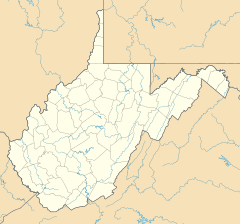Brounland, West Virginia facts for kids
Quick facts for kids
Brounland, West Virginia
|
|
|---|---|
| Country | United States |
| State | West Virginia |
| County | Kanawha |
| Elevation | 617 ft (188 m) |
| Time zone | UTC-5 (Eastern (EST)) |
| • Summer (DST) | UTC-4 (EDT) |
| GNIS ID | 1549612 |
Brounland is a small, unincorporated community located in Kanawha County, West Virginia, in the United States. An unincorporated community is a place that does not have its own local government. Instead, it is managed by the larger county or state government.
This community got its name from Thomas L. Broun. He was the person who originally owned the land where Brounland is now located.
Contents
Understanding Unincorporated Communities
What is an Unincorporated Area?
An unincorporated area is a place that is not part of any municipality, like a city or town. This means it does not have its own mayor or city council. The local services, such as roads and public safety, are usually provided by the county government.
How They Are Governed
In an unincorporated community like Brounland, the county government handles many of the tasks that a city government would normally do. This includes things like maintaining roads, providing police and fire services, and managing local zoning rules. Residents still pay taxes to the county and state.
Geography and Location
Where is Brounland?
Brounland is situated in Kanawha County, which is one of the largest counties in West Virginia. The community is found in the western part of the state. Its exact location is marked by specific geographic coordinates.
Elevation and Surroundings
The elevation of Brounland is about 617 feet (188 meters) above sea level. West Virginia is known for its mountains and hills. This means Brounland is likely surrounded by natural landscapes typical of the Appalachian region.
History of the Name
Origin of "Brounland"
The name "Brounland" directly comes from Thomas L. Broun. He was the first owner of the land where the community developed. It was common for early settlements in the United States to be named after their founders or important landowners. This tradition helps us understand the history of many places.
See also
 In Spanish: Brounland (Virginia Occidental) para niños
In Spanish: Brounland (Virginia Occidental) para niños
 | William M. Jackson |
 | Juan E. Gilbert |
 | Neil deGrasse Tyson |



